- About Us
A leader in passing policies for waste management and stewardship
Our Mission
Zero Waste Washington drives policy change for a healthy and waste-free world.
Our Vision
We envision a just, equitable, and sustainable future where we all produce, consume, and reuse responsibly.
WHY WE DO WHAT WE DO
Waste issues require an intersectional approach
Our work is not just about reforming the recycling system or advocating for more composting. While part of the solution, these actions are only a part of the equation. Waste is a systemic problem that requires an approach that addresses the root causes. That is why our work is working at the intersection of these broader issues:
Climate Change
The production of consumer goods and the waste associated with production generates enormous amounts of greenhouse gas emissions that contribute to a changing climate.
Resource Depletion
The continuous extraction of finite natural resources drains our planet and further exacerbates environmental justice issues.
Public Health
Industrial and commercial production create toxic chemicals and plastics pollution that threaten the health of human beings, animals, and our natural environments.
Environmental Justice
The people most negatively affected by climate change, underregulated industrial production, and problems of extraction, production, refining, and waste management are historically marginalized people (e.g., people of color, lower-income people, people with disabilities, and other historically oppressed peoples).
HOW WE MAKE IT HAPPEN
7 Priorities for Our Work
Achieving a waste-free world requires coming at the problem from a variety of angles. For that, Zero Waste Washington focuses on seven interconnected priorities that advance solutions based on regenerative practices that give back to or help restore nature versus depleting it.
Promote producer responsibility
Reduce plastic pollution
Encourage reuse, repair, and sharing
We facilitate the growth of repair culture and reuse economy with grassroots programming that engages and benefits underserved communities.
Remove toxic chemicals
We work to eradicate toxic chemicals from products by studying them and advocating for manufacturers to eliminate, replace or reduce their usage.
Promote redesign
We advocate for waste reduction by promoting redesign of products and packaging, driving innovation to reduce products’ toxicity, and promoting clean composting and recycling.
Drive the market to reduce contamination
Promote innovation
We promote innovation to tackle difficult problems in design, policy, and technology by supporting trailblazing businesses and passing incentivizing legislation.
The history of what we do
The History of Zero Waste Washington
Zero Waste Washington was founded in the late 1970s by activists working for a statewide bottle bill. Since then, we’ve become known as Washington State’s leader in advocacy for sustainable and environmentally focused waste solutions. Our work has always sat at the vanguard of necessary change around waste reduction and management. We have evolved to be a part of a broader movement that understands zero waste as a solution to profoundly interconnected issues of environmental justice, climate change, public health, and resource depletion. Over the past 40 years, Zero Waste Washington has been instrumental in creating massive policy and cultural change around recycling and waste management policies. From the 1980s, when we helped change the culture and systems around recycling to the 2020s where we’re looking at not only eliminating waste, but also changing the way products are made. The history of Zero Waste Washington is synonymous with the history of waste reduction and stewardship in Washington State. Check out our major accomplishments of the last 40 years here. All of this work has been in partnership with hundreds of community groups, nonprofit organizations, government agencies, businesses, and individuals.
2020s
2022
Note: All bill details can be found in this 2022 Legislative Overview Document.
- Advocated for The RENEW Act bill, to modernize our recycling systemand reduce waste.
- Supported passage HB 1799, Representative Joe Fitzgibbon’s major compost and food waste bill, that will reduce organic waste disposal 75% by 2030 and increase the volume of edible food recovery 20% by 2025, relative to a 2015 baseline.
- Helped to pass a bill to reduce methane emissions from landfills, HB 1633, championed by Representative Davina Duerr, requiring owners or operators of certain landfills to install methane gas capture systems and to collect gas at an extraction rate that complies with surface methane emission limits.
- Supported as a partner, a bill to eliminate PFAS ‘forever chemicals’, HB 1694 championed by Representative Liz Berry.
- Supported many bills that did not advance including: Right to Repair bill, HB 1810, championed by Representative Mia Gregerson; Battery recycling bill HB 1896 Championed by Representative Kirsten Harris-Talley; The RENEW Act bill, SB 5697 championed by Senators Mona Das and Christine Rolfes to modernize our recycling system and reduce waste; Reparability Index, HB 1801 Championed by Representative Gregerson; Toxics in cosmetics, SB 5703/HB 1853, Championed by Senator Mona Das and Representative Jessica Bateman; and Recycling wind turbine blades SB 5492 championed by Senator Jeff Wilson.
- Partnered with the Seattle Good Business Network, to launch the PreCycle Innovation Challenge 2022.
- Continued to host Fix-It Fairs and launched Furniture Fix-It Fairs.
- Conducted the First Annual Litter Free Washington Summit.
- Convened the Washington Workgroup for Sustainable School Cafeteriasto assist schools and school districts across Washington state to implement reusable solutions in the lunchroom.
- Helped plan a new national online series, Deep Dive Virtual Forums, focused on the topic of reuse of durable items.
2021
Note: All bill details can be found in this 2021 Legislative Overview Document.
- Successfully advocated for a plastics law, HB 1118/SSB 5022, championed by Senator Mona Das, banning foam foodservice products, coolers and packing peanuts, requiring restaurants and foodservice to only provide straws, utensils, and cold cup lids on request, and requiring use of post-consumer recycled plastic for plastic beverage containers, household cleaning and personal care products, and trash bags.
- Lobbied successfully for a law allowing the use of wheat straw for bags, HB 1145, championed by Representative Rude, allowing the use of non-wood renewable fiber in recycled content paper carryout bags
- Supported passage of HB 1139 addressing lead in drinking water, championed by Representative Pollet, and requiring and facilitating sampling and testing for lead contamination at drinking water outlets in school buildings.
- Worked to pass an Industrial symbiosis law, SB 5345, establishing a statewide industrial waste coordination program.
- Supported HB 1365, a bill Championed by Representative Gregerson, requiring the provision of learning devices for students and staff, including recycling and repair (which passed).
- Helped hold the line in legislation, HB 1393, which delayed certain implementation dates for the photovoltaic module stewardship and takeback program.
- Advocated successfully for SB 5040, Prioritizing funding for highway litter pickup.
- Supported the following bills that did not advance, including: Right to Repair HB1212 Championed by Representative Mia Gregerson, promoting the fair servicing and repair of digital electronic products; Organic Waste Goal, SB 5286: Championed by Senator Mona Das, establishing a statewide organic waste management goal; Recycling wind turbine blades, SB 5174 Championed by Senator Jeff Wilson, providing for the recycling of wind turbine blades.
- Held annual Legislative Tea to educate the public on issues for the legislative session
- Published a report, Improving Organic Materials Management in Washington State, including policy recommendations and assessing current conditions, barriers, and opportunities to increasing the management of organic waste in Washington to address the problem of methane.
- Hosted a Circular Innovation Challenge, where FIVE finalists pitched their best-manufactured product idea using ‘waste’ or recycled materials.
- Launched a workgroup to assist schools and school districts across Washington state to return to reusable solutions in the lunchroom.
- Partnered with the Duwamish River Community Coalition to support the Duwamish Valley Youth Corps with an intensive program for high school students in the South Park neighborhood of Seattle.
- Continued to work with the EPA and partner organizations to refine a standardized litter assessment protocol.
2020
Note: All bill details can be found in this 2020 Legislative Overview Document.
- Successfully got the State Board of Health to change Washington food laws to allow refillable reusable containers
- Helped pass the Reusable Bag Bill, SB5323 sponsored by Senator Mona Dos, that banned thin film plastic carry-home bags at all retail establishments.
- Worked successfully on a compost use bill, ESHB 2713, sponsored by Representative Amy Walen to encourage local governments to use compost and sets up a 3-year pilot grant program to reimburse farmers for their use of compost.
- Helped pass a solar panel recycling bill, ESHB 2645, that fixes loopholes in the existing producer stewardship program for solar modules.
- Advocated for a non-flushable wipes bill, ESHB 2565, that would require that non-flushable wipes have large labels that make it clear that they cannot be flushed, which passed.
- Advocated for the following bills, which did not advance, including: Plastic food service products (HB 2656) to reduce waste associated with single-use food service products; a Styrofoam ban (SB 6213) ; a sharps product stewardship (HB 2360) to establish the sharps waste stewardship program; a battery product stewardship (HB 2496) that would have provided for responsible environmental management of batteries; a ban on water rights for bottled water (ESSB 6278); a food date labeling bill (HB 2651) addressing food waste by standardizing labels communicating the freshness or expiration of food, and a right to repair; (SB 5799) concerning the fair servicing and repair of digital electronic products, Worked on industrial waste coordination legislation, SB 6430 to the heat, water and waste materials from different industries inputs for adjacent industry (vetoed); industrial waste coordination (SB 6430) to the heat, water and waste materials from different industries inputs for adjacent industry; and a mandate for recycled content (HB 2722), requiring a minimum post-consumer recycled plastic content in beverage containers.
- Advocated successfully for the Department of Health and their Food Safety Advisory Council to add new language to Washington Food Safety to allow consumers to bring their own containers to grocery stores.
- Held Fix-it Fairs in Kitsap County and Seattle.
- Co-sponsored online tour of the Recycle BC Packaging and Paper Product Extended Producer Responsibility
- Held its first Pacific NW Zero Waste Hackathon, where teams developed and invented ideas for zero waste and conducted a Waste Summit.
- Hosted a Repair Economy Conference.
- Opposed a methanol refinery in Kalama due to climate concerns.
- Hosted a free screening of the movie The Story of Plastic at the Seattle Aquarium.
- Partnered with the Duwamish River Cleanup Coalition to hold sessions for the Duwamish Valley Youth Corps that supported a special cohort of youth focusing on plastic.
- Co-sponsored with partners an online tour of the Recycle BC Packaging and Paper Product Extended Producer Responsibility
2010s
2019
- Helped pass a paint bill, HB 1652, championed by Representative Strom Peterson, allowing people to drop off old paint at paint stores and other retailers.
- Advocated successfully for a compostability labeling bill, HB 1569, championed by Representative Bill Ramos, requiring that compostable products must be compostable (i.e., meet standards) and preventing those products with misleading claims on their packaging from being sold in Washington.
- Supported bill (SB 5397) addressing plastic packaging by requiring Ecology to study the amount, costs, and current end-of-life for plastic packaging.
- Helped pass a bill, HB 1114 championed by Representative Beth Doglio, that sets a goal to reduce our food waste by 50% by 2030.
- Supported bill to restore the litter tax so that the bulk of this fund is back to its intended purpose to support recycling, litter cleanups and other activities to reduce waste and pollution.
- Helped pass a sustainable recycling bill (HB 1543) which will create a research center to develop and stimulate end markets for recycling and create recycling contamination reduction plans.
- Supported successfully the Model Toxics Control Act (MTCA) (SB 5993) to generate and stabilize funding for cleanups and waste reduction.
- Supported a bill to allow human composting (SB 5001), which passed
- Worked to update of Washington’s Food Code to make it possible for food establishments to allow customers to bring in their own food containers.
- Partnered with the Duwamish River Cleanup Coalition to hold sessions for the Duwamish Valley Youth Corps that provided pollution education, leadership and job skill preparation for students.
- Kicked off a new project teaching elementary school children about waste prevention and contamination reduction.
- Partnered with the Mt. Baker Group of the Sierra Club to host an all-day Waste Summit, The Truth About Plastics, in Bellingham.
- Lobbied for a ban on plastic carry-home bags, which did not pass.
- Supported local efforts to pass reusable bag and take-out food container ordinances in cities and counties in Washington.
- Published report “The State of Residential Recycling and Organics Collection in Washington State.”
- Expanded Fix-It Fairs to include Seattle and Kitsap County.
- Hosted, in partnership with Bainbridge Island Zero Waste, a special screening of documentary film Rubber Jellyfish by Carly Wilson, concerning the balloon industry’s impact sea turtles and other species.
- Launched TAP! – Refill your water bottle project in Seattle and in Snohomish County, which involved contacting businesses to join the app so the public would know where they can get a free water bottle refill.
2018
- Lobbied for the Secure Drug Take Back Act, SHB 1047, championed by Representative Strom Peterson and Zero Waste Washington’s #1 priority at the state legislature for 2018, which was signed into law.
- Partnered with other organizations at a Seattle Aquarium event to launch a campaign for a statewide bag bill
- Supported a bill, SHB 2658, to ban the use of PFAS in food packaging, Teflon-like chemicals in food packaging including “to go” containers, which passed into law.
- Supported an E-waste recycling bill, ESHB 1824, concerning electronic product recycling and updating the E-Cycle law of 2006, adding transparency and sanctions for violations.
- Advocated for a food waste bill, SHB 2411, to establish a goal for the state to reduce, by 50%, the amount of wasted food generated annually by 2030, relative to 2017 levels.
- Supported a statewide bill that would provide standards for compostability labeling and remove uncertainty and the potential for greenwashing.
- Advocated for bills that did not advance, including: paint bill, SHB 1376, require stewardship of discarded latex and oil-based paint; Right to Repair, SHB 2279, concerning the fair servicing and repair of digital electronic products; revamping the E-Cycle law to include new technologies.
- Supported the Yes on 1631 campaign, addressing climate change.
- Helped research a group of toxic chemicals called per- and polyfluoroalkyl substances (PFAs), that is showing up in commercial composts, partnering with researchers at Purdue University.
- Hosted annual Legislative Action Tea.
- Began working with the Duwamish Valley Youth Corp supporting the Duwamish River Cleanup Coalition.
- Held first Fix-It Fairs in Tacoma in partnership with The Tacoma Tool Library, the Tacoma Housing Authority, Centro Latino and others
- Advocated for
- Helped community members working to establish plastic bag ordinances in Kent, Redmond, Bothell and Port Angeles, and more.
- Launched a project to collect data, quantifying the amount and sources of plastics getting into our waters and worked on the Escaped Trash Assessment Protocol (ETAP) with the US Environmental Protection Agency (EPA) to help test their new trash assessment protocol across the state.
- Partnered with the Washington State Recycling Association to present The Shirt Off Your Back, The State of Textile Recycling, Reuse, and Repair Today, a Waste Summit at REI in Seattle.
2017
- Lobbied for funding to improve oil-spill prevention in Puget Sound, provide public input on pipelines, clean up toxic sites, and provide water for rural homes, farms, rivers, and streams.
- Lobbied for Paint SHB 1376, a paint stewardship bill to require stewardship of used latex paint.
- Helped pass ESSB 5939, the Solar Incentives Job Bill, which incentivized solar unit ownership and created jobs in the local renewable energy industry, and required solar module recycling for units sold after July 1, 2017.
- Advocated for the following bills, which did not advance, including Medicine Return bill, SHB 1047, championed by Representative Strom Peterson, which would protect the public’s health by creating a system for safe and secure collection and disposal of unwanted medications; children’s computers, HB 1596, requiring manufacturers of electronics to report the presence of high-priority chemicals under the children’s safe products act; E-waste recycling bill, SHB 1824, concerning electronic product recycling program; (HB 1744) a ban on PFAS in food packaging, Teflon-like chemicals found in packaging including “to go” containers.
- Opposed Fees for Light-Cycle, SB 5762, concerning financing of the mercury-containing light stewardship program, which would decrease the amount of the annual fee required to be paid by a stewardship organization to the Department of Ecology and would reduce the frequency of independent financial audits to only once every three years.
- Launched a project in partnership with King County, City of Tacoma, City of Seattle, WA State Department of Ecology, and others, to identify and reduce the largest sources of phthalates from outdoor products in proximity to two Superfund sites in Puget Sound by testing outdoor products (such as paint) for phthalate concentrations and conduct outreach to businesses and agencies about alternative products.
- Organized a tour of Recology CleanScapes Material Recovery Facility (MRF).
- Held a Plastics Waste Summit at the Tukwila Community Center.
2016
- Advocated successfully for producer responsibility laws directed at electronics and mercury-containing lights.
- Conducted research to determine how many errands people do when they make a trip to recycle electronics and published results.
- Fiscally sponsored the Tacoma Tool Library, which had its grand opening.
- Took a strong stand in support of good policy on paint stewardship (HB 1571), and solar panel recycling (HB 2346). Fought against bills to weaken environmental laws, such as a harmful policy on public participation grants and the design of aluminum beer cans.
- Researched glass recycling issue and collaborated on preparing draft Washington Commingled Recycling report.
- Organized car-seat panel for Washington State Recycling Association Conference
- Helped support the Snohomish County Medicine Take-Back Policy, which the Snohomish County Board of Health passed.
2015
- Provided support for the establishment of the Tacoma Tool Library to empower the community by providing access to tools and workshops at little to no cost.
- Partnered with CoolMom to expand car seat reuse and recycling options for families in King County.
- Advocated for the following bills, which did not advance, including paint recycling, recycling funding, microbeads (opposed it), and detachable tabs on aluminum cans.
- Participated in workgroup to that explored improvement to the commingled curbside recycling system.
- Carried out research to determine how common it is for residents of Puget Sound to perform additional errands when dropping off electronics for reuse or recycling and created a Nonprofit Event Supplies Sharing Network where people can borrow rather than buy.
- Collected booster and car seats at a 1-day event and worked with local recycler to dismantle them for recycling.
- Partnered to foster carpet recycling by gathering information and exploring pathways forward through in-depth interviews and a stakeholder summit.
2014
- Advocated for the following bills, which did not advance, including mercury-containing lights (HB 2246), paint stewardship, composting (HB 2072), requiring new multifamily buildings to provide space for collection containers for food waste and yard debris (HB 2481), PCBs SB 6086, and fishing line recycling for (SB 6080).
- Successfully opposed a bill, SB 6028, to define electricity from a municipally owned waste-to-energy facility as an eligible renewable resource.
- Testified in support of a bill, (did not pass.)
- Supported a successful Seattle ordinance to prohibit food waste from disposal as garbage.
- Worked to increase carpet recycling throughout Washington including partnering to create a webinar to share developments in carpet recycling, conduct an on-line survey, and interview people involved in carpet recycling.
- Worked with CoolMom to expand car seat reuse and recycling options for families in King County, including holding Car Seat Recycling at Sustainable Ballard Festival
- Worked to create a lending library of durable products in south King County while connecting with people to support their leadership on zero waste.
- Worked with government partners to gather information and ideas through in-depth interviews, an on-line survey, and a stakeholder summit to increase reuse and recycling of carpet.
- Furthered the concept of community sharing by collaborating to support a neighborhood sharing project in south King County.
- Participated in a 2-day National Batteries Stewardship Dialogue Meeting convened by the Product Stewardship Institute.
- Participated in meetings of CRADLE2 and workgroup on comingled recycling.
- Provided input about Ecology’s Beyond Waste Plan update related to incineration.
2013
- Worked for the take-back and safe disposal of medicines, resulting in the King County Board of Health passing the Secure Medicine Return Regulations.
- Partnered with CoolMom to expand opportunities to reuse and recycle car seats in Seattle and King County.
- Performed research and launched the Community-Powered Sharing Project to model shared ownership and waste prevention.
- Presented and tabled at a showing of
- Participated on the CRADLE2 Steering Committee and the WSRA Policy Committee.
- Monitored the E-Cycle Washington program by providing input on outreach and the next 5-year program plan.
- Advocated for the following bills, which did not advance: mercury-containing lights, rechargeable battery stewardship bill, HB 1364, paint stewardship (HB 1579/SB 5424).
- Partnered to increase carpet reuse and recycling, exploring pathways forward considering joint strategies.
- Participated on workgroup that explored improvements to the commingled curbside recycling system.
2012
- Celebrated 30th anniversary!
- Advocated for the following bills, which did not advance: statewide producer responsibilities efforts for bills for rechargeable batteries, paint, carpet, unwanted medicines and statewide policy to ban plastic bags and put a fee on paper bags to encourage the switch to reusables.
- Continued grassroots campaign for producers to take responsibility for printers, having citizens send postcards to HP and Canon, the largest manufacturers.
- Worked on a drug take-back program for King County.
- Launched a new partnership, CRADLE2, a national collaborative to promote cradle-to-cradle zero waste solutions.
- Continued its grassroots campaign for producers to take responsibility for printers, including a postcard-writing campaign to HP and Canon.
- Partnered with other advocates to research issues, collaborate on policy, build grassroots support, and testify at hearings.
- Provided input on the rules being developed to implement the producer responsibility law for mercury-containing lights.
2011
- Advocated for the following bills, which did not advance: bottle bill requiring a deposit on glass, metal, or plastic bottles or cans, and producer responsibility laws for carpet, secure medicine return, and expansion of the electronics law to include desktop printers and other peripherals.
- Generally continued to educate the public about waste reduction, recycling, zero waste, and producer responsibility.
- Implemented a strategic outreach campaign to spread the word about producer responsibility and created educational materials.
- Participated in rulemaking for the recycling law for mercury-containing fluorescent lights.
- Collaborated on projects with the Northwest Product Stewardship council, participating on the Electronics TakeBack Coalition’s Policy Committee.
2010
- Changed name to Zero Waste Washington, launched new website and updated mission: Zero Waste Washington protects people and our natural world by advocating for products designed and produced to be healthy, safe, and continually recycled and reused. We are the public’s voice for zero waste.
- Successfully advocated for producer responsibility law for mercury-containing lights, providing input on the rules to implement the law.
- Kicked off a strategic outreach campaign about producer responsibility, talking to people at events including KUBE Summer Jam and Seattle Tilth’s Harvest Fair.
- Advocated for a secure medicine return bill (which did not pass).
- Supported Seattle’s yellow pages phonebook opt-out registry.
- Provided input to the Department of Ecology’s work looking at existing solid waste management laws in Washington to find ways to improve the statutory infrastructure
- Collaborated on various projects with the Northwest Product Stewardship Council.
- Participated on the Electronics TakeBack Coalition’s Policy Committe
2000s
2009
- Advocated for the following bills, which did not advance: producer responsibility bills for medicine, requiring drug producers to provide and pay for the convenient and secure collection and safe disposal of unwanted medicines from households; producer-provided recycling program for mercury-containing lights
- Helped create E-Cycle Washington recycling program, which collected over 35 million pounds of old computers, monitors and TVS in the first 11 months.
- Collaborated with a diverse coalition on a pilot project to securely take back unwanted and expired household medicines at 25 Group Health Cooperative pharmacies. Worked with health care providers to develop both long-term and immediate strategies to educate on how to reduce medicine waste from households, developing web pages and first-of-its kind brochure on reducing medicine waste.
- Worked with a number of local jurisdictions, including Pierce County and Tacoma, to initiate retail “Take It Back Networks” for electronics and fluorescent lights.
- Kicked off a strategic outreach campaign to spread the word about producer responsibility.
- Engaged in the advisory process for the Department of Ecology on recommendations for a program to recycle mercury-containing lights, resulting in Ecology ‘s recommendation for a producer responsibility approach.
- Conducted a study to evaluate a rechargeable battery recycling program.
- Evaluated the Rechargeable Battery Recycling Corporation’s in-store program for collecting and recycling rechargeable batteries and cell phones.
- Participated on the Beyond Waste working group of Washington’s Climate Advisory Team to recommend solid waste policies that reduce greenhouse gas emissions.
2008
- Advocated for the following bills, which did not advance: secure medicine return bill and a fluorescent light recycling bill.
- Continued partnership with Group Health and other organizations in state pilot project for alternative for drug disposal that securely collected and disposed over 15,000 pounds of unwanted household medicines since its start-up in late 2006, including feedback survey of customers and pharmacy staff.
- Researched green chemistry drug disposal alternatives and convened a series of conference calls with scientists, non-profits and others.
- Initiated efforts to create a “Take it Back Network” to provide residents in Pierce County with opportunities to responsibly recycle burned out fluorescent lights and participated in a national stakeholder dialogue about fluorescent lights.
- Provided policy input on fluorescent lights and medicine return and more considered by a state working group on reducing greenhouse gas emissions.
- Facilitated a task group to develop a proposal for a Beyond Waste Implementation as a part of the governor’s process on climate change.
- Convened a think tank to begin to discuss and prioritize strategies for reducing the toxicity and quantities of waste pharmaceuticals.
- Convened a national working group to scope the potential for green chemistry, non-incineration possibilities for household pharmaceuticals.
- Organized a workshop to address Medicine Return in Washington State.
- Participated in a National Stakeholder Dialogue organized by the Product Stewardship Institute to discuss recycling of fluorescent lighting.
2007
- Advocated successfully with other environmental and citizen groups for a ban on toxic flame retardants.
- Worked with others to develop a policy option to reduce climate change by expanding source reduction, recycling, and composting and submitted the policy to the State’s Climate Advisory Team.
- Supported successful bill, SHB 2056, requiring vendors who sell beverages at outdoor sports facilities to provide recycling for bottles and cans.
- Advocated for the following bills, which did not advance: tire bill (SSB 5080), to allow steps towards a product stewardship approach to tire recycling and disposal; and Do not mail (HB 1205 and SB 5719), requiring the state to establish a “do not mail” registry.
- Supported Seattle’s 60% recycling goal and activities to achieve that goal, including bans on certain recyclables in the garbage.
- Advocated for recycling system for mercury-containing fluorescent bulbs.
- Continued partnership with Group Health and other organizations in state pilot project for alternative for drug disposal and supported efforts by counties to launch Take It Back Networks.
- Hosted a think tank designed to brainstorm ways to reduce the impact of medicines in the environment.
- Participated on an advisory panel regarding the new electronics law, passed in 2006, to develop rules and implement the law and create recycling standards.
- Continued working to expand “Take It Back Networks” for electronics recycling to create more locations.
- Continued participating in a multi-stakeholder process to increase Washington’s flagging recycling rate of beverage containers, examining a broad range of strategies
- Tracked King County’s consideration of incineration.
- Collaborated with the Northwest Product Stewardship council to develop model framework policy for product stewardship and participated on the council’s Chemical Policy Committee.
- Participated on the Computer TakeBack Campaign’s Policy Committee and provided input on model electronics producer responsibility policy.
2006
- Collaborated on successful passage of the strongest electronics recycling laws in the country, sponsored by Senator Craig Pridemore, creating a manufacturer-financed system for recycling computers and TVs from residents, schools, and small businesses.
- Presented Senator Craig Pridemore with a Recycling Leadership Award for his leadership in passing the most comprehensive electronics recycling bill in the country and making product stewardship a reality in Washington State.
- Continued working to expand “Take It Back Networks” to provide opportunities to recycle computers and TVs with new programs in Tacoma and Pierce County.
- Kicked off a pilot program to take back unwanted household medicines with Group Health pharmacies in Washington. Researched alternate final disposal options. Educated residents and nursing homes about the environment impact of flushing unwanted medicines or putting them in the trash, and about the pilot project. Made presentations and produced a brochure, poster, and container signage.
- Developed first-of-its kind information on reducing waste medicines.
- Collaborated on a new effort in Washington State to increase the flagging recycling rate of beverage containers, examining a broad range of strategies.
- Participated in the national Computer TakeBack Campaign, promoting clean production and producer take-back of consumer electronics..
2005
- Worked to develop e-waste legislation to be proposed in the 2006 legislative session, including participating on Ecology’s electronics advisory committee, and participating in the Computer TakeBack Campaign, a national coalition.
- Successfully advocated for a “study” bill requiring the Department of Ecology to make recommendations on recycling obsolete computers and TVs.
- Advocated for the following bills, which did not advance, including legislation regarding funding the removal and safe management of mercury auto switches in scrap vehicles
- Worked to create “Take It Back Networks” to recycle computers and TVs in Yakima, Island, Pierce and Thurston Counties.
- Provided Washington State Surplus and local governments with information on the human health and economic problems associated with the use of prison labor to process electronics.
- Educated residents and stakeholders about electronics and producer responsibility through presentations, adds, and media coverage.
- Distributed “Citizen’s Guide to Producer Responsibility.”
- Collaborated with governmental and private organizations on a pilot program for disposal of unwanted pharmaceuticals. Researched disposal issues and developed questions for inclusion in a residential survey in early 2006.
- Researched how to best dispose of unused pharmaceuticals from households, considering the regulatory framework for handling them.
- Participated on Washington’s electronics advisory committee, convened by the Department of Ecology to consult with electronics manufacturers, local governments, environmental groups, and others.
- Participated in the national Computer TakeBack Campaign, promoting clean production and producer take-back of consumer electronics, serving on the campaign’s Policy Working Group.
- Supported the restoration of Coordinated Prevention Grant funding to local governments for their hazardous waste and recycling programs, which was cut in 2005.
- Advocated for a strong rule for PBTs, persistent, bioaccumulative toxins such as mercury and dioxins, providing testimony to the Department of Ecology.
2004
- Played a leadership role in bringing an electronics study bill to fruition HB 2488, requiring the Department of Ecology to submit recommendations to the legislature for implementing and financing statewide recycling of obsolete computers and TVs.
- Worked with jurisdictions and retailers to develop programs based on the “Take It Back” approach for collecting computers, monitors, and TVs.
- Participated on an advisory group to support Ecology’s studies of the e-waste issue.
- Participated on the electronics stakeholder committee, advocating for producer responsibility and convenient electronics recycling for all Washington citizens.
- Collaborated with other organizations to analyze dust swiped from computer monitors for toxic chemicals in the first nationwide analysis of its kind.
- Advocated for the phase out of toxic flame retardants, including Deca-PBDE, providing testimony to the Department of Ecology.
- Supported proposed revisions to King County’s Waste Acceptance Rule that would ban the disposal of computers, monitors, televisions and cell phones at King county solid waste facilities. Offered comments to the Department of Commerce regarding electronics recycling, including recommendations about financial responsibility and responsible recycling
- Provided input to the national Paint Product Stewardship Initiative, participating on a local Northwest Paint Advisory Group.
- Distributed the “Citizen’s Guide to Producer Responsibility” to members, citizens, elected officials, and local government.
- Participated in the national Computer TakeBack Campaign, promoting clean production and producer take-back of consumer electronics, serving on the campaign’s Policy Working Group.
2003
- Awarded “Leader in Product Stewardship Award” at 2003 Northwest Hazardous Waste Conference.
- Received “Product Stewardship: Local Level” award from the North American Hazardous Materials Management Association.
- Published the Citizen’s Guide to Producer Responsibility and began distribution to over 11,000 citizens, elected officials, and others.
- Advocated for the following bills, which did not advance, including electronics producer responsibility legislation (HB 1942).
- Joined Computer TakeBack Campaign (CTBC) — a national coalition promoting clean production and producer take-back – and participated in “Hard Drive Across the West”, picking up and delivering obsolete computers to Dell, with the message that it should accept cradle-to-cradle responsibility for its products.
- Contributed to developing the Department of Ecology’s 10–20 year hazardous and solid waste management “work plan.”
- Continued to support local participation in the National Electronics Product Stewardship Initiative (NEPSI) to develop a national product stewardship program for e-waste
- Cosponsored RE Stores’ 2nd Recycled Art Show.
- Advocated Seattle Mayor Nickels’ proposal to prohibit businesses from disposing of paper and cardboard in the garbage.
- Supported the City of Seattle’s commitment to a 60% recycling goal
- Served on the Washington Department of Ecology’s “Beyond Waste” panel.
2002
- Conducted the Computer TakeBack Campaign.
- Wrote and introduced an e-Waste House bill.
- Participated in City of Seattle recycling press conference.
- Edited, printed, and distributed Citizens Guide to Producer Responsibility.
2001
- Participated in series of four regional round table meetings and stakeholder dialogues to develop recommendations on the vision, priority issues, and action alternatives for Washington Solid Waste Plan.
- Collaborated with the City of Seattle to convene stakeholder meetings with tire industry, recyclers, government agencies, and the legislature, resulting in recommendations for reusing and recycling scrap tires.
- Chaired Seattle’s Solid Waste Advisory Committee and King County Commission for Marketing Recyclable Materials.
- Promoted waste prevention, recycling and product stewardship on state and local advisory committees.
- Participated in national product stewardship policy development groups.
- Coordinated with stakeholders from the tire industry, recyclers, government agencies and the legislature to determine long-term recycling solutions for tires and create a scrap tire market development program.
- Published flyer on Producer Responsibility.
2000
- Advocated for product stewardship on the state Recycling assessment Panel, convened by the Department of Ecology.
- Participated on a Product Stewardship Subcommittee that prepared a critical issue paper for the Washington Solid Waste Plan update.
- Co-sponsored a regional conference on product stewardship along with the City of Seattle, King and Snohomish counties, and the Environmental Protection Agency.
- Began project, with a grant from the US EPA, to investigate scrap tire solutions and develop goals to reduce the environmental impacts of end-of-life tires, while minimizing the costs to government.
- Advocated for bills intended to increase the state’s recycling rate, which did not advance.
- Served as a founding council member of the Northwest Product Stewardship Council (NWPSC) and focused this year on computers and tires in preparation for the spring conference.
- Conducted surveys to ask supporters what they wanted to recycle and presented results to government entities.
1990s
1999
- Researched, created, and distributed Waste Free Moving Guide with grant funding from the City of Seattle.
- Represented citizens on the state’s Solid Waste Advisory Committee, taking initial steps to update the state solid waste plan, reviewing standards for solid waste and recycling facilities, and tracking relevant legislation.
- Served on Seattle’s Solid Waste Advisory Committee, providing input on the city’s new solid waste and recycling collection systems.
- Participated on the state Recycling Assessment Panel, convened by the Department of Ecology, and advocated for product stewardship and made recommendations later crafted into bills.
- Advocated for the inclusion of strong recycling programs in King county’s solid waste plan and for funding for reduction and recycling programs.
- Served as active member of the King County Commission for Marketing Recyclable Materials.
- Provided statewide leadership on product stewardship.
- Helped, as part of the Northwest Product Stewardship Council, to initiate and plan for the first annual regional conference on product stewardship and sponsored the conference along with the City of Seattle, King and Snohomish Counties, and the EPA.
1998
- Surveyed and monitored county recycling budgets and programs statewide
- Served on the solid waste advisory committee.
- Served as a founding member of the Northwest Product Stewardship Council, working to integrate product stewardship into policy and structures of Pacific Northwest.
- Advocated for the following changes, following the previous year’s budget cuts to recycling programs: a $1 million surplus be given back to recycling programs, recycling funding be restored to 50% of the budget, litter pickup and recycling funding be put into two different accounts.
- Opposed a cap on the litter tax paid by each retailer, unless there would be a cap on the amount of waste they generate.
- Addressed its concerns over the revised permitting system proposed by the Department of Ecology for facilities that handle solid waste, which would make it easier to get a permit but would make it challenging for innovative companies seeking new ways to use recycled materials.
- Held Waste Prevention Awards and Booby Prizes.
- Conducted recycling surveys to collect information about innovative programs in the counties of Washington.
1997
- Advocated for the following bills, which did not advance, including Recycling Task Force (HB 1681 and HB 5798) that made future recommendations for the Recycling Task Force including allowing the privatization of the Clean Washington Center and broadened the scope of the Solid Waste Advisory Committee
- Opposed SB 5842 that would reallocate the Litter fund, a tax paid by manufacturers and retailers to support recycling and fund litter pickup.
- Created a Tip Sheet for the public, listing places to donate and sell unwanted items
- Supported student-led effort to advocate for legislation banning polystyrene, “Styrofoam.”
- Surveyed and monitored county recycling budgets and programs statewide.
- Represented public interest in waste reduction and recycling issues, participating on the state Solid Waste Advisory Committee, King County Commission for Marketing Recycled Materials, and the Washington State Recycling Association conference.
- Distributed educational publications to schools, libraries, and work places including WCRC’s Reduce, Reuse, Recycle Guide and Purchasing Recycled Products.
- Tracked the level and effectiveness of recycling expenditures by county for Washington State.
- Participated in community events including the Earth Day Arbor Day Festival in Bellevue, the Symposium on sustainable design in Seattle, the Environmental Forum for Business in Spokane, and a Recycling Roundup in Wenatchee.
1996
- Advocated for bills to strengthen Washington’s landfill siting standards.
- Supported recycled products procurement laws, HB 1231, proposed by students and assisted by Rep. Nancy Rust.
- Supported bills SB 6095 and SB 6096 regarding landfills to set new standards for large, above-ground landfills and a bill requiring financial mechanisms to protect taxpayers should these landfills need to be closed due to a natural disaster (both bills didn’t pass)
- Defeated a bill that would have removed the requirement for state testing of operators of landfills and incinerators.
- Successfully supported a bill that adopted federal recycled content standards.
- Supported a bill, ESHB 2657, that rewrote the definition of “public works” to include solid waste and recycling facilities, making moneys available for solid waste and recycling projects (the bill passed).
- Collaborated on the bottle-washing pilot project.
- Laurie Valeriano, Take the Wrap campaign manager and author of WCRC’s Plagued by Plastic Packaging guide, appeared on “Earthtalk.”
- Endorsed I 88 and organized volunteers to collect signatures for the initiative to protect Puget Sound.
- Conducted storm drain stenciling events for fight oil pollution.
- Participated in Washington State charrette about recycling.
- Provided leadership for the first America Recycles Day in Washington, which resulted in dozens of events promoting recycling to thousands of people.
- Consulted with hospitals to look into ways to reduce waste.
- Conducted research on the resource impacts of batteries, safe battery disposal, and recycling, and how to educate consumers on environmentally sound battery choices.
- Planned a one-year wine bottle reuse pilot project, which opened in the Central District of Seattle.
- Participated in Earth Share of Washington’s Day in the Park
- Held 3rd Annual Benefit auction.
- Participated in KOMO KidsFair with booth, games, and educational activities and the Tilth Organic Harvest Fair.
- Published 1996 edition of Reduce, Reuse, Recycle Guide.
- Created a Citizen’s Action Network (CAN) to inform WCRC supporters of waste reduction, recycling and pollution prevention policy matters and involve citizens in decision-making.
1995
- Organization rebranded as Washington Citizens for Resource Conservation and expanded mission to include product stewardship.
- Worked to defeat I 164 that would strip communities of the ability to control growth and protect property values.
- Supported the sole source aquifer designation for the Eastern Columbia Plateau
- Advocated for 2SSB 5497 to require a four-cent deposit on a quart of automotive motor oil intended for sale to the general public at retail, with Senator Rosemary McAuliffe as the primary bill sponsor.
- Advocated for the following bills, which did not advance, including recycled products procurement laws (SB 5343 and HB 1231) proposed by students and assisted by Rep. Nancy Rust (did not pass).
- Became a member of the Green Seal Environmental Partners Program, which identified products that meet environmental criteria.
- Advocated for using cotton bags and paper.
- Worked to defeat Referendum 48 that would allow greater exploitation of resources.
- Continued to be a leader in the national “Take the Wrap” campaign to promote plastics recycling and Reach for Unbleached” campaign.
- Published Plagued by Plastic Packaging Report to educated citizens, government, and industry on environmental and health problems associated with plastics and excess packaging.
- Joined the MORE campaign to end motor oil dumping by making recycling drop sites more accessible and by educating consumers about the effects of used motor oil in our environment.
- Distributed 5000 copies of Purchasing Recycled Products, WCRC’s detailed consumer guide.
- Formed the Buy Recycled Partnership with the Clean Washington Center and others to expand the market of products manufactured by recycled materials.
- Helped establish the Law Firm Waste Reduction Network to examine practices that could be improved through waste reduction and resource conservation.
- Promoted the use of durable and reusable containers in the restaurant industry.
- Began a bottle-washing project that will generate jobs while protecting the environment.
- Raised money and public awareness through the organization’s first Buy Recycled Parade Walkathon.
- Participated in Glass Eye Art Auction.
- Provided cutting-edge information through the organization’s newsletter.
- Worked with local government and others to create a bill, SB 5497, to spur collection of do-it-yourselfer used motor oil (it did not pass).
- Succeeded in the defeat of Referendum 48, which posed a threat to public health, worker safety, and the preservation of natural resources.
- Contributed to a nation-wide effort to give input on the Federal Trade Commission’s review of the confusing “chasing arrows.”
1994
- Advocated for the following bills, which did not advance, including HB 1720, to remove the “chasing arrows” recycling symbol from products that are not recyclable
- Supported a national “chlorine zero discharge” bill, H.R. 2989, introduced by Rep. Bill Richardson (D-N-M) that would ban the use of chlorine by paper and pulp mills by 1999 (did not pass).
- Published opinion pieces about the need for the state to use recycled paper that is not secondarily bleached with chlorine and advocated for Governor Mike Lowry to sign an executive order requiring state agencies to switch to unbleached paper products (which remained unresolved).
- Held Washington State’s first curbside recycling program for used oil.
- Engaged in debate over pyrolysis and successfully defeated a bill to define pyrolysis of tires as recycling.
- Worked on the “Take the Wrap” campaign to address misleading plastics labeling and highlight the lack of plastics recycling.
- Held press conference at Sea-Dru-Nar Recycling to laud President Clinton’s executive order on recycled paper.
- Assisted with research for King County’s “Buy Recycled” Guide (interns).
- Worked with fish distributers in the Puget Sound area to create a demonstration program to replace non-recyclable corrugated delivery boxes with reusable plastic boxes.
- Engineered a “Buy Recycled” campaign focused on recycled office paper in Washington’s smaller communities.
- Advocated successfully for the EPA and the City of Bellevue to sign policies requiring the purchase of recycled non-chlorine bleached papers.
- Continued the “Reach for Unbleached” paper campaign, sending message to the largest industrial users of bleach—the pulp and paper industry.
- Presented to the President’s Council on Sustainable Development (PCSD).
- Chaired the chlorine subcommittee of the Zero Toxics Alliance (ZTA), which included environmental and labor organizations. Persuaded numerous businesses and organizations to convert to unbleached paper products. Provided educational resources and technical support for environmental organizations regarding unbleached paper technology, pricing, and availability.
- Created a “yellow pages” telephone directory of recycled products and their retailers in King County.
- Raised awareness about used-motor-oil pollution. Collaborated to bring to Edmonds, Woodway, and Lynnwood the first curbside used motor oil collection program that also accepts oil filters. Facilitated, together with a coalition, a collection route for used oil in Ellensburg and Cle Elum, demonstrating that this is economically viable in Eastern Washington. Focused on switching vehicle fleets to re-refined oil in the Okanogan County Public Utility District and a pilot program with Metro in Seattle.
- Provided educational materials at the University District Street Fair and Freemont Fair
- Published the second annual Reduce, Reuse, Recycle Guide.
1993
- Helped to pass a bill, HB 1100 sponsored by Rep. Lane Bray, requiring trucks bound for landfills or transfer stations to have their loads covered.
- Supported budget proviso for responsibility for state reimbursement of contaminated loads of used oil.
- Advocated for the following bills, which did not advance, including HB 1720 by Rep. Jeanne Kohl, to remove the plastic industry’s chasing arrow coding system, making it the first organization in the country to promote such a bill
- Sponsored a conference on Mercer Island to discuss ways to cut down on waste.
- Facilitated a regional used motor oil collection program at over thirty sites in western Washington and served as a catalyst for an additional 60 sites statewide.
- Advocated for establishing a reimbursement system for used oil collectors when their oil becomes contaminated by hazardous waste.
- Published editorial that recycling is working but is only one element of a natural resource strategy.
- Sponsored hearing about the handling of trash and a new state law that would reduce packaging and increase recycling.
- Campaigned to ensure that the “Ban on Bans” was sunsetted.
- Lobbied the Seattle City Council successfully to pass an ordinance requiring all city departments to use recycled paper produced without chlorine.
- Worked on a directory of recycled products to be published in 1994.
- Engaged in implementing strategies to increase used oil collection, including curbside pickup and collection events.
- Worked with retailers throughout state to offer re-refined oil products. Assisted private and government fleets to convert to re-refined oil. Assisted City of Bellevue in educating residents about its oil collection program.
- Kicked of its re-refined oil market development campaign designed for the consumer.
- Worked with businesses—manufacturers and retailers—to reduce packaging waste and save money.
- Campaigned to encourage President Clinton’s Executive Order to for the federal government to purchase recycled paper and other recycled products.
- Worked on the reauthorization of the Resource Conservation and Recovery Act (RCRA) which ground to a halt.
- Educated local governments and state policy makers about the unproven nature and economics of the pyrolysis process.
- Participated in national “Take the Wrap” campaign to revise the plastics coding system and an Earth Day national event with a press conference to protest the Society of the Plastics Industry’s (SPI) use of the chasing arrows recycling symbol on nonrecylable plastic packaging.
- Joined the Alliance for a Sustainable Materials Economy, a broad-based coalition
- Published and distributed the Waste Reduction Activity Guide.
- Held events to present smart shopping and recycling advice to the public.
- Worked on excess packaging issue.
- Volunteered to assist with Freemont Fair’s recycling program.
- Participated in numerous community outreach events including the Seattle Times Annual Environmental Garden Fair, Microsoft Earth Day, University of Washington Recycling Fair, and others.
1992
- Advocated successfully for long-term funding for the Clean Washington Center.
- Advocated for the following bills, which did not advance, including packaging reform bill, HB 2678 sponsored by Rep. Nancy Rust; HB 2678 mandating minimum recycled content standards.
- Published numerous editorials on the need for waste reduction and recycling and wasteful packaging emphasized that recycling alone won’t solve the garbage problem, advocating for manufacturer responsibility.
- Facilitated a regional used motor oil collection program at over thirty sites in western Washington and served as a catalyst for an additional 60 sites statewide.
- Awarded the King County Recycle Week ’92 Outstanding Achievement Award by King County for its commitment to recycling.
- Assisted with recycling at Folklife festival and provided recycling and environmental information to the public. Held waste reduction activities at Seattle Community Centers.
- Launched a packaging reduction campaign to educate and involve the public and raise awareness of the issue in the media.
- Completed national survey comparing used oil collection programs.
- Led field trips for junior high school and high school students from economically. distressed areas to recycling and solid waste management facilities through a grant from Ronald McDonald Children’s Charities.
- Organized the “Reach for Unbleached” paper campaign, impacting procurement policies regionally and nationally.
- Participated in 30 other public events to educate Washingtonians about recycling and purchasing recycled products.
- Conducted a study to measure the actual recycling rate for do-it-yourself used oil.
- Began two projects to increase the demand for re-refined motor oil and worked to convert public and private sector vehicle fleets to use re-refined oil and anti-freeze.
- Worked on the reauthorization of the federal Resource Conservation and Recovery Act (RCRA) (which did not progress).
- Helped draft a bill which would have required manufacturers to utilize materials more efficiently by reducing waste, using recycled materials, and using refillable containers.
- Led effort to build statewide support for the “Ban on Bans”, which prevented local fees or bans on problem wastes and held a Local Government Summit Meeting on the issue. WCFR was successful in allowing the Ban on Bans to expire.
- Worked directly with manufacturers to reduce the amount of packaging used and performed packaging audits for major businesses.
- Began the promotion of two-way envelopes to reduce waste.
- Carried out waste reduction projects at City of Seattle Community Centers.
- Organization moved to new office at 157 #309 Yesler Way.
- Established a WCFR volunteer program.
- WCFR gave Nancy Rust Legislator of the Year for 1992.
- Appeared on KIRO Radio to discuss the need for industry to invest in technology and commit to recycled content in products to close the recycling loop.
1991
- Facilitated a regional used motor oil collection program at over thirty sites in western Washington and served as a catalyst for an additional 60 sites statewide.
- Advocated for successful local government procurement bill, SB5143, including paper products, motor oil, compost, plastics, and retread and manufactured tires to help stimulate the market for recycled content products.
- Formed a speaker’s bureau to make educational presentations to schools and community meetings.
- Served on the Packaging Task Force and participated in a Western Regional Dialogue session about plastics packaging.
- Supported strong packaging reform bills sponsored by Rep. Nancy Rust and Art Sprenkle, which failed.
- Advocated for a national and Washington State bill calling for manufacturers to reduce packaging and be responsible for the costs. The national bill also required other elements, including for motor oil to contain a minimum of 10% re-refined oil.
- Presented and moderated at the Northwest Information EXPO.
- Advocated for SB 5591 implementing long-term systems for motor oil collection statewide and establishing the Clean Washington Center to assist private sector in market development for recycled content products.
- Supported bills to increase purchasing of recycled content products and expand curbside recycling to apartments.
- Conducted Used Oil Collection Project, including production of 10,000 posters sent to schools emphasizing reusing and resource management.
- Designed and distributed posters to every elementary and secondary school in Washington State.
- Led field trips for junior high and high school students from economically distressed areas to recycling and solid waste facilities.
- Served as member of King County Commission for Marketing Recyclable Materials and successfully advocated for the adoption of labeling standards detailing definitions for recyclability and recycled content for King County.
- Testified to Rep. Swift’s House Subcommittee on Transportation and Hazardous Materials about the way the nation’s resources are managed and advocated for methods of source reduction, recycling, and market development.
1990
- WCFR sunsetted and Washington Citizens for Recycling Foundation assumed lead responsibility for citizen promotion of waste reduction and recycling activities.
- Facilitated a regional used motor oil collection program at over thirty sites in western Washington and served as a catalyst for an additional 60 sites statewide.
- Released “Packaging Awards and Booby Prizes from an Environmental Point of View”, which created awareness of excess packaging and gained national coverage.
- Served on the packaging task force and fought for packaging reform.
- Participated in stakeholder committee to implement 1989 Waste Not Washington Act.
- Advocated for the following bills, which did not advance, including newsprint recycling and procurement sponsored by Senator Murray and others sponsored by Senator Metcalf and CFC bill to require automotive and appliance service industry to employ CFC recycling methods when working on automobile air conditioners and refrigerators and a comprehensive waste reduction bill that addresses industry-generated CFCs, a bill sponsored by Representative Rust; and a waste oil recovery bill to support better oil recycling
- Supported education to encourage proper disposal, and consumer awareness.
- Backed government procurement bills (did not reach the Senate floor).
- Worked to promote expanded markets for recycled products through increasing consumer awareness and demand for products using recycled or recyclable materials.
- Supported bill ESHB making trucks carrying recyclables exempt from certain transportation taxes.
- Participated at Earth Fair ’90 at Marymoor Park.
- Met with U.S. Postal Service, Seafirst Bank reps, and others regarding a new stamp that contains plastic and threatens the value of mixed paper.
1980s
1989
- Advocated for solid waste management system, which encouraged waste reduction and recycling as top priorities which culminated in the passage of the 1989 Waste Not Washington Act 1989 (ESHB 1671/ SB 5755), which made curbside recycling a widespread reality in Washington. It established fundamental strategies for waste management and set a goal to achieve 50% recycling by 1995.
- Was appointment to many of the task forces and working committees created by the Waste Not Washington Act
- Sponsored 1st annual “Packaging Awards and Booby Prizes from an Environmental Point of View” that received extensive national coverage and sparked broad awareness of excess packaging as a concern.
- Advocated for the use of recycled newsprint at newspapers including the Seattle Times
- Developed recycling program with Seattle Public School District, which included educational curriculum on waste reduction and recycling.
- Provided assistance to University of Washington fraternities and sororities in setting up recycling collection program
- Negotiated with Rainier Brewery to rescind decision to use throw-away bottles and instead wash and reuse 12 oz. bottles (New Tribune article).
- Supported I-97 which passed and set up a hazardous waste disposal program for the state. The passage of hazardous waste management priority legislation, which established hazardous waste reduction and recycling as the highest priority.
- Conducted a door-to-door canvassing event to educate citizens on waste reduction and recycling: reached more than 9,000 households and recruited 500 new members.
- Conducted meetings with newspaper publishers and pulp/paper mill industry representatives to encourage expanded use of recycled newsprint.
- Held 7th annual WCFR Recylathon.
1988
- Pressure influenced Seattle to begin curbside recycling program (see Timeline).
- Advocated for solid waste management system, which encouraged waste reduction and recycling as top priorities.
- Created a library about recycling practices, house at the WCFR office, and made it available to the public for research purposes.
1987
- Prioritized legislative bills on hazardous waste cleanup, implementation of solid waste standards, and resources to manage all waste problems.
- Opposed the municipal incinerator ash disposal bill, ESSB 5570, which passed.
- Advocated for the following bills, which did not advance, including legislation to introduce a new emphasis on recycling through program activities identified in MLCRA.
- Advocated for solid waste management system, which encouraged waste reduction and recycling as top priorities.
- Lobbied and helped prevent the siting of solid waste incinerators in Seattle and King County.
- Joined the coalition WATCH (Washingtonians Against toxics and Chemical Hazards) to support hazardous waste legislation.
- The organization launched the Issues Development Project to identify and research solid hazardous waste issues, then conduct a survey about waste issues to gauge the public’s concerns.
1986
- Advocated for solid waste management system, which encouraged waste reduction and recycling as top priorities.
- Advocated for the following bills, which did not advance, including bill to require recycling of more used oil (HB2569). “Put of Pay” bill and a bill addressing control that states that cities and counties must allow for the diversion of waste materials for recycling purposes in their waste management.
- Opposed Coke’s development of plastic/aluminum Coke cans and is instrumental in removing non-recyclable plastic-aluminum soda cans from store shelves in Southern Washington.
- Presented testimony indicating its concern with the scope of The Seattle Solid Waste Management Study report and its lack of complete information on recycling options.
- Spoke at hearings in Seattle and Spokane in support of a petition to require cities and counties building garbage incinerators to develop plans to encourage recycling first and then to size any incinerator consistent with these plans.
- Filed a petition with Representative Dick Nelson that requests the Department of Ecology write rules on municipal solid waste incineration to ensure facilities include in their planning accommodation of all reasonable recycling.
- Held a Recyclathon and raised $35,000 in pledges
1985
- Advocated for solid waste management system, which encouraged waste reduction and recycling as top priorities.
- Lobbied successfully for a solid waste bill focused on landfill reserve accounts and required the regulation of garbage and refuse collection companies in the state
- Successfully lobbied for an amendment to the Solid Waste Management Act to encourage the proper disposal of tires.
- Supported and helped pass a bill (HB 975) to define the responsibilities of local and state governments to plan for the management of all quantities of hazardous waste.
- Authored and passed HB 69 for the Washington Department of Ecology (WDOE) to develop methods to estimate the costs for each landfill and methods to ensure each account receives adequate funds. It was amended to include, not only landfill reserve accounts but to allow other types of financial assurance.
- Helped pass the HB 975, a Hazardous Planning and Facilities Siting Bill, to ensure that hazardous waste facilities are sited safely in Washington.
- Testified at hearings in support of the Department of Ecology’s Minimum Functional Standards for Solid Waste Handling.
- Helped pass HB 865, the Hazardous Substances Information and Education Office to provide information compiled by different agencies.
- Advocated for the following bills, which did not advance, including Small Quantity Generator Assistance Act, HB 212, which died in session.
- Lobbied for “Put or Pay” Bill, which would have allowed cities and counties to sign contracts to deliver a set tonnage of garbage to a garbage-burning plant for a set fee.
- Sponsored a workshop on the complexities and problems of managing our solid waste at legislative workshops sessions held by the Audubon Society and the Washington Environmental Council.
- Co-sponsored a hazardous waste conference.
- Was instrumental in the removal of non-recyclable plastic-aluminum soda cans from store shelves.
- Organized a Recyclathon on June 30th. Seattle Mayor Charles Royer spoke at the rally and press conference and declared June 30th to be “Recycling Day” in Seattle.
1984
- Set priorities to support a moratorium on approval of off-site dangerous waste disposal facilities until further studies of type and number of facilities Washington will need, a limit on the number or recyclables that can be burned in Energy Recovery Facilities, improvements in Washington’s Litter and Recycling Program, and a phase-out of the amount of hazardous waste currently being dumped into city and county landfills.
- Advocated for solid waste management system, which encouraged waste reduction and recycling as top priorities.
- Supported a waste management bill that passed, which created a moratorium on the disposal of Washington State’s dangerous wastes at commercial landfills, representing a shift in state policy toward environmental stewardship. It was signed into law in March by Governor Spellman.
- Advocated for “Recycling Amendments” to the Solid Waste Management Act that were included in HB 1164, which passed
- Supported a “Right to Know” bill that would have required employers to inform workers of chemicals used in their plants. This was vetoed by the governor.
- Advocated for a Small Generator Bill, HB 1436, to eliminate the exemption allowing small generators of dangerous waste to dump up to 400 pounds a month per generator in solid waste landfills.
- Advocated for the following bills, which did not advance, including HB 1426 which included amendments to the Model Litter Control and Recycling Act, MLCRA addressing a variety of issues, including how monies are spent
- Participated in the Environmental Impact (EIS) scoping process for Energy Recovery, meeting with the City of Seattle representatives and presenting questions to be addressed in the EIS.
- Held second Recyclathon.
- Hosted first annual auction and second casino night.
1983
- WCFR set the following legislative priorities: amendments to the Model Litter Control and Recycling Act, oil recycling legislation, and hazardous waste recycling legislation.
- Advocated for solid waste management system, which encouraged waste reduction and recycling as top priorities.
- The organization proposed amendments to the State Litter Control and Recycling Program (MLCRA).
- WCFR authored and successfully lobbied the Hazardous Waste Recycling and Reduction Bill (SB4245) passed, establishing a priority management system for hazardous waste
- WCFR authored and successfully lobbied SB2401 to implement a program that promoted oil recycling.
- Supported and successfully lobbied for an oil recycling bill and a hazard waste bill that passed.
- Created its first Recyclathon to raise money and focus media attention on recycling. For a number of years, annual recyclathons aided in cleaning up litter in Seattle, raising money for WCFR, and bringing media attention to the issues of litter and recycling. 10,000 bottles and cans were collected and $6,500 raised.
- Initiated a canvas program in Seattle to do fundraising, recruit new members and expand public awareness of WCFR and recycling issues.
- WCFR attended a curriculum-writing workshop for teachers revising the A Way with Waste program.
- Chris Chapman created a slide presentation highlighting the need for bottle recycling.
1982
- Washington Citizen’s Recycling Foundation was founded as a companion to WCFR.
- Advocated for solid waste management system, which encouraged waste reduction and recycling as top priorities. Focused on three legislative priorities: an oil recycling public education program, a bill to encourage the state to purchase recycled paper products, and a bottle bill.
- Helped draft and successfully lobbied for a ban on detachable metal pull-tabs on beverage containers in Washington State.
- The organization took a position that energy recovery should not be considered an alternative to recycling and opposing the “forced litter tax.”
- Successfully promoted a bill to have state government purchase recycled paper.
- Began lobbying the City of Seattle to build a comprehensive solid waste management plan and to establish curbside recycling.
- Lobbied City of Seattle to change city zoning to enable recycling stations in neighborhoods.
- Collected signatures for Bottle Bill Initiative 414, sponsored by Citizens for a Cleaner Washington (CCW) that would have required a beverage container deposit. The initiative failed
1981
- Advocated for solid waste management system, which encouraged waste reduction and recycling as top priorities.
- Advocated for the following bills, which did not advance, including on oil and recycling and bill to encourage the state to use recycled paper products
- Successfully promoted an ordinance to boost recycling that passed the Seattle City Council unanimously.
- WCFR launched a bottle bill campaign.
- Washington Citizens for Recycling held a workshop on waste reduction.
- WCFR’s North End Seattle Recycling Center officially opened, recycling newspaper, cardboard, beer bottles, glass, aluminum cans, and tin cans. It was dedicated by Mayor Charles Royer on Earth Day and renamed the Roosevelt Recycling Center.
- WCFR participated in the Redmond Recycling Committee, developing recommendations for the city.
1980
- Washington Citizens for Recycling (WCFR) was formed by key members of Citizens for Returnable Beverage Containers (CRBC) who expanded the scope to deal with all recycling issues
- WCFR promoted Seattle Ordinance #102138, allowing recycling centers and drop-off centers in all business zones. It is signed into law by Mayor Charles Royer in April.
- Set up own recycling program with drop-offs for cullet glass, newspapers, and aluminum.
1970s
1979
- Launched Initiative 61 (Washington Beverage Container Deposit). The law would have required a minimum 5-cent deposit on beer, malt, and carbonated beverage containers. The initiative was defeated in November when it gained only 42.37% of the votes.
1978
- Citizens for Returnable Beverage Containers (CRBC) was founded to work on a “Bottle Bill.”
1970
- A group of motivated students tried to get a bottle bill passed.
Our Staff
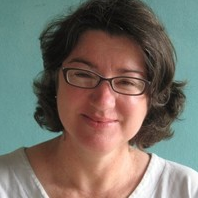
Heather Trim
Executive Director
Executive Director
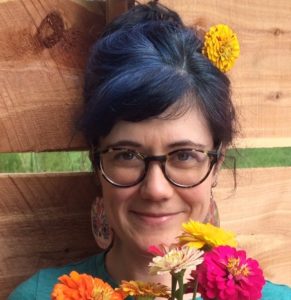
Kami Bruner
Chief Convener - Repair x Reuse Washington
Chief Convener - Repair x Reuse Washington
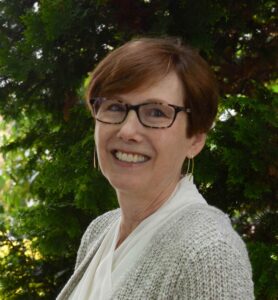
Michelle Alten-Kaehler
Development Coordinator
Development Coordinator

Millicent Rhoades
Finance and Operations Manager
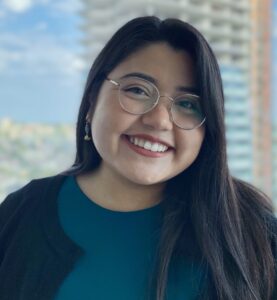
Nayeli Campos
Community Outreach and Policy Coordinator
Community Outreach and Policy Coordinator
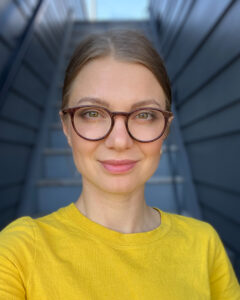
Xenia Dolovova
Waste Reduction Program Director
Waste Reduction Program Director
Xenia Dolovova, Waste Reduction Program Director, plans and facilitates Zero Waste Washington waste reduction efforts, including community-based projects, research, and statewide policy projects. Before moving to Seattle and joining ZWW in early 2019, she lived in Abu Dhabi where she managed projects in a start-up environment. Originally from Moldova, she has 11+ years of experience, business, marketing, and sustainability, holding an MBA degree from Paris Business School and a PMP Certificate. She leads Zero Waste Washington’s Fix-It Fair program and Repair Economy movement, Organics management research, Phthalates research, Zero Waste Hackathon, Litter Assessment project, and organizational communication efforts. (Contact: xenia[at]zerowastewashington[dot]org)Board of Directors
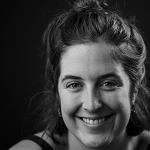
Hannah Johnson

Holly Beale
Board member candidate
Board member candidate
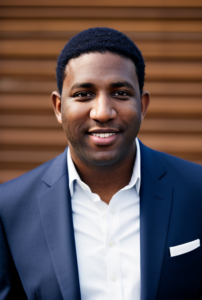
Jay ONeal
Board member candidate
Board member candidate
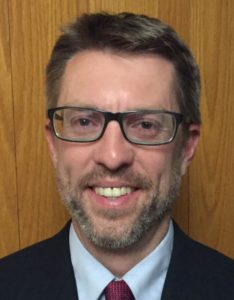
Kyle Loring
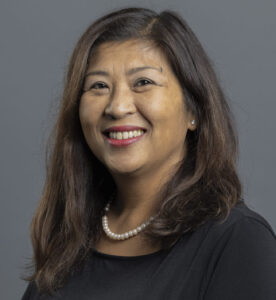
Mai Nguyen
Board member candidate
Board member candidate
Mai Nguyen serves at as the Chief Operating Officer of Seattle Goodwill and oversees a wide and critical scope of service for the organizations operations across Northwest Washington including information technology, asset management, financial operations, and risk management. Mai has been recognized for her commitment to her community throughout her career, including receiving the Denise Louie Education Center 2016 Dream Award for her dedication to early education for children and families in the Seattle area. She currently serves as the board treasurer for George Pocock Rowing Foundation.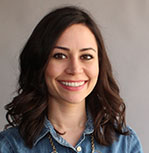
Marie Novak
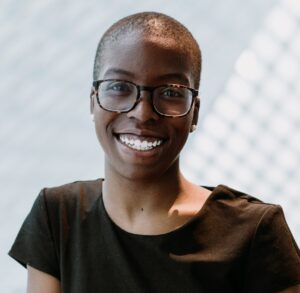
Moji Igun
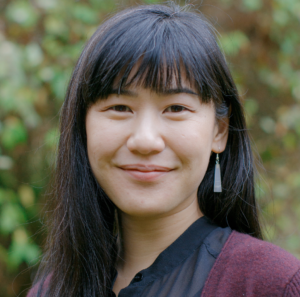
Patty Liu
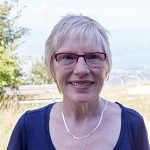
Sally Wolf

Steve Gilbert
STAFF OR BOARD TESTIMONIAL
Join our Email List
To stay up-to-date on current legislation, news about Washington State’s zero waste movement, and information on how to get involved in our work, sign up for our email list today.
"*" indicates required fields
Want to get involved? Contact us to find out about engagement opportunities.
